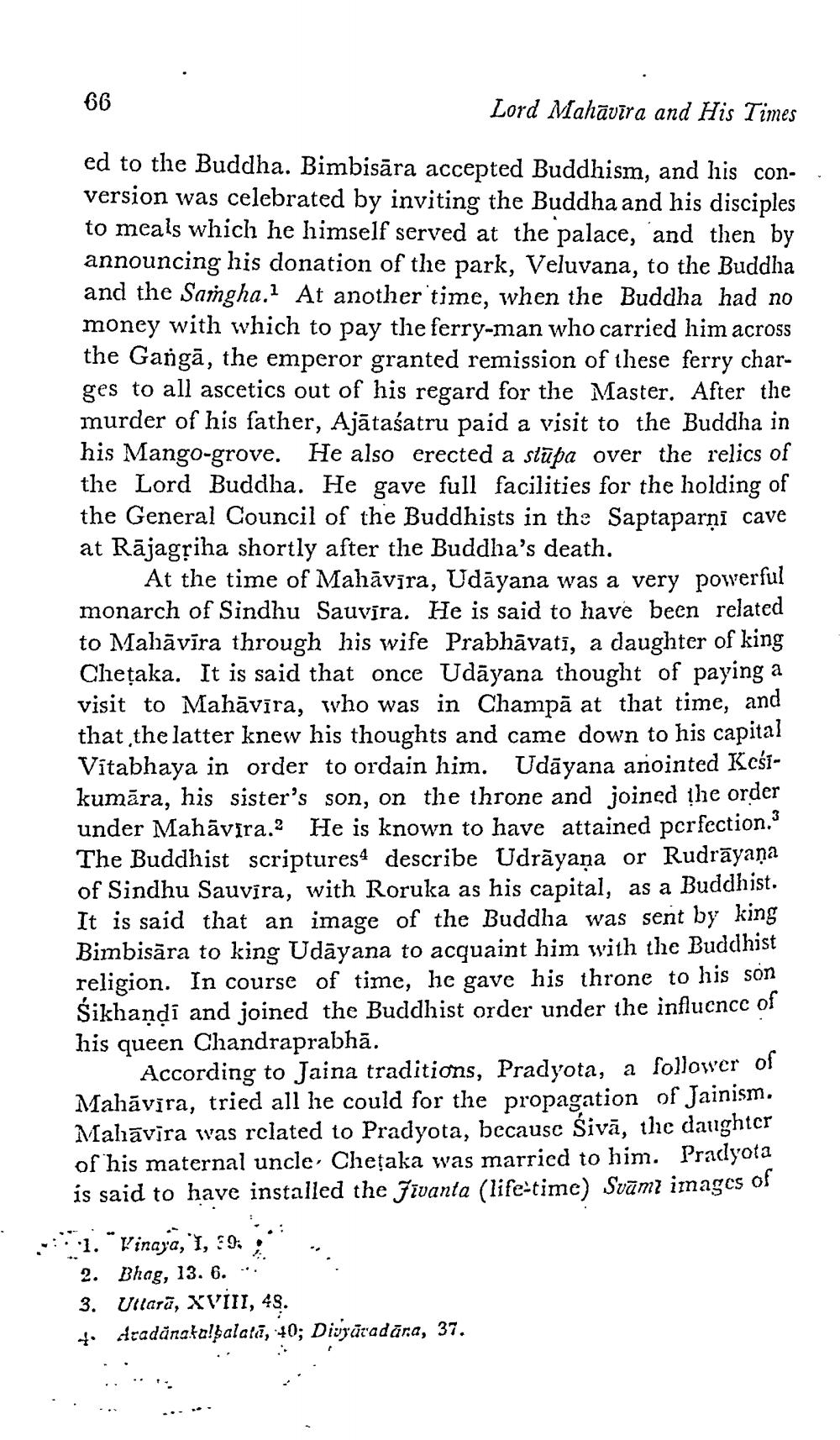________________
66
Lord Mahāvīra and His Times ed to the Buddha. Bimbisāra accepted Buddhism, and his conversion was celebrated by inviting the Buddha and his disciples to meals which he himself served at the palace, and then by announcing his donation of the park, Veluvana, to the Buddha and the Samgha.? At another time, when the Buddha had no money with which to pay the ferry-man who carried him across the Gangā, the emperor granted remission of these ferry charges to all ascetics out of his regard for the Master. After the murder of his father, Ajātaśatru paid a visit to the Buddha in his Mango-grove. He also erected a stūpa over the relics of the Lord Buddha. He gave full facilities for the holding of the General Council of the Buddhists in the Saptaparņi cave at Rājagņiha shortly after the Buddha's death.
At the time of Mahāvīra, Udāyana was a very powerful monarch of Sindhu Sauvīra. He is said to have been related to Mahāvīra through his wife Prabhāvati, a daughter of king Chețaka. It is said that once Udāyana thought of paying a visit to Mahāvīra, who was in Champā at that time, and that the latter knew his thoughts and came down to his capital Vítabhaya in order to ordain him. Udāyana anointed Keśíkumāra, his sister's son, on the throne and joined the order under Mahāvīra.? He is known to have attained perfection." The Buddhist scriptures4 describe Udrāyaṇa or Rudrāyaņa of Sindhu Sauvīra, with Roruka as his capital, as a Buddhist. It is said that an image of the Buddha was sent by king Bimbisāra to king Udāyana to acquaint him with the Buddhist religion. In course of time, he gave his throne to his son Sikhandi and joined the Buddhist order under the influence of his queen Chandraprabhā.
According to Jaina traditions, Pradyota, a follower of Mahāvīra, tried all he could for the propagation of Jainism. Malāvira was rclated to Pradyota, becausc Śivā, the daughter of his maternal uncle, Chetaka was married to him. Pradyota is said to have installed the Jivanta (life-time) Svām? images of 1.1. "Vinajā, 1, 9:
2. Bhag, 13. 6. -. 3. Ullarā, XVIII, 43. 4. dradănako!şalati, 40; Divpäradāra, 37.




